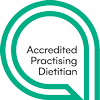A quick guide to more food peace this festive season
The festive season is almost here and while it can be a time of joy, gratitude, and connection, the high expectations and heightened focus around food can also make it a stressful time of the year for many people. It can feel particularly overwhelming if you are working on your relationship with food and your body, and if you have children, raising them to have a healthy relationship with food and their body. Having some strategies, like the ones I’m sharing below, can ease any stress or tension you might be feeling and help you and your children feel calmer and more confident around food this season and can help make it a more peaceful time for you and your family.
As you read, please keep in mind that some strategies may not apply to you and your situation. Take what resonates and leave the rest.
Remind yourself of your “why”
Reminding yourself of your “why” – the reason why you are working on having a better relationship with food and your body, and why you want your children to have a healthy relationship with food and their body helps you remain more immune to the harmful messages of diet culture.
Consider how you want to respond to diet talk
Diet talk is especially common at this time of the year and many of us are likely to find ourselves dodging it at the office party and celebrations with friends and family. Having some strategies in mind for dealing with this kind of talk before arriving at an event can help preserve your peace around food and eating this holiday season. In my blog How to navigate diet talk this festive season, I share some strategies that can help you navigate diet talk and preserve your peace around food and eating this holiday (and every) season.
Set loving and compassionate boundaries
We often feel that setting boundaries means being selfish and uncaring. In reality, boundaries support a healthier relationship with yourself and others. Setting boundaries can be a very helpful way to navigate diet talk during the festive season as it lets people know what is and isn’t up for conversation. So, if you are spending time with family and friends who have different opinions on food and bodies than you do, consider communicating your boundaries regarding food, weight and diet talk before you meet with them. Start by working out what’s most important to you (e.g. no diet talk), then let your family and friends know how this kind of talk makes you feel and – most importantly – what you would like them to avoid saying or asking. This can feel awkward or hard, especially if you don’t like confrontation or struggle to speak up for yourself, so if you need some help formulating what to say, I share some ways of expressing your boundaries around diet talk in my blog How to navigate diet talk this festive season.
Choose foods you enjoy eating
Eating is supposed to be pleasurable and satisfying, but many people are afraid that if they let themselves eat foods that bring them pleasure, they will eat in a way that feels “out-of-control”. But the opposite is actually true. When we give ourselves unconditional permission to eat foods we enjoy, we feel more satisfied after a meal and more content. When we allow ourselves to eat the foods we enjoy, we’re more likely to eat an amount of food that feels comfortable in our body. Conversely, feeling mentally and physically deprived of food leaves us more vulnerable to eating past comfortable fullness and binge eating.
Remember, giving yourself permission to eat a food doesn’t mean always saying “yes” to that food. It means you are free to say “yes” or “no” to a food.
Maximising satisfaction and food enjoyment includes knowing and choosing foods that taste good and feel good in your body. If you’ve been dieting for a while, you may not be clear on the foods you like to eat. So, it can be helpful to take some time to reflect on your favourite foods during the festive season, and consciously make room i.e. give yourself unconditional permission to savour and enjoy eating those foods. Consider different textures, flavours and dishes that hold sentimental value as well. All of these contribute to increased satisfaction and a more positive eating experience. I dive into this in more detail in my blog Discover the satisfaction factor.
Honour your hunger
Have you ever skipped breakfast or lunch only to arrive at a restaurant or dinner party REALLY hungry? If you have, you may have found that the combination of being ravenously hungry and delicious food led to eating past comfortable fullness and a less than enjoyable eating experience. This is because when we get overly hungry, we tend to eat really fast, in an attempt to give our body the energy the needs, which prevents us from savouring our food and can lead to feeling uncomfortably full.
When you Honour your hunger and stay nourished throughout the day, you’re less likely to arrive at a party or other holiday event ravenously hungry, eat past comfortable fullness and so quickly you can’t fully enjoy the food!
Prioritise self-care
The holiday season can be stressful and emotional. Sometimes, this can affect the way we eat. For example, being over-scheduled and stressed, along with sleep deprivation, both of which are common at this time of year, can make it harder to notice subtle hunger and fullness cues. This can lead to more chaotic eating, skipping meals and possibly eating past comfortable fullness. Also, while emotional eating* is not wrong, if food is your only tool for coping with emotions like bordem, loneliness etc., it can mean that that other needs you have are not being met and long term it may be more helpful to have some additional tools for meeting those needs. If you want to dive into this some more, check out my blog Coping with your emotions with kindness. All this to say, thinking about some ways you like to take care of yourself and taking some time to practise self-care during the holidays, will leave you feeling calmer and more confident around food.
If fitting selfcare into your packed schedule sounds like just another thing to do on your already long to-do list, consider just listing your top self-care priorities. Regular meals and getting enough sleep may be two. Keeping hydrated and wearing comfy clothes may be others. Other things you might like to consider are journaling, spending time in nature, moving in ways that feel good to you, meditation or sitting and reading a book or listening to your favourite music.
* A note on emotional eating: We all eat for emotional reasons at this time of year. Whether it’s the biscuits your grandmother bakes, your mum’s mince pies or turkey with stuffing, eating is not just about fuelling up and there is nothing wrong with that. Food is also tradition, culture, joy and nostalgia.
Lean on community
Ditching diet culture is counter culture, and it can sometimes feel like you are swimming upstream, so being in community with people who have also made the decision to ditch diet culture and understand why you made this decision and what you are experiencing can be really helpful. That might look like keeping in touch with people you know who have ditched diet culture, listening to anti-diet and Intuitive Eating podcasts, following like-minded social media accounts, participating in an anti-diet or Intuitive Eating Facebook group and more.
Ask for support
The expectations around food can be very high at this time of the year and you may be feeling alot of pressure to try and meet them. If so, it can be helpful to consider some practical solutions, that can help reduce the pressure around food and eating. For example, if you’re hosting an event, ask your partner or others to help with cooking, or request each guest bring a dish.
If you feel you might need some support when it comes to approaching diet talk at the table, consider asking your partner or other family member to be your ally. I talk more about this in my blog How to navigate diet talk this festive season.
Enjoy some non-food activities
The holiday season is about spending time and creating memories with loved ones. For many, food can play an important role here, and for others, including anyone healing from an eating disorder, this time of year and the focus on food and eating can be daunting. If this is true for you or your child, consider some ways of connecting with others after mealtimes such as card or board games, completing a jigsaw puzzle, going to see some Christmas lights in your neighborhood, listening to carol singing or watching a movie. Non-food activities can be a helpful distraction, especially if you or your child are healing from disordered eating.
Final words
Having a plan or some strategies can help make the holiday season a more peaceful one. That might look like remembering the reasons why you made the decision to ditch diet culture, how you want to approach diet talk, set compassionate boundaries with those closest to you, Honouring your hunger, giving yourself unconditional permission to eat, asking for support and enjoying some non-food activities.
Ready to take the next step? Contact me and request a complimentary call to find out more about Intuitive Eating and how it can help you truly nourish yourself – body, mind and soul.





